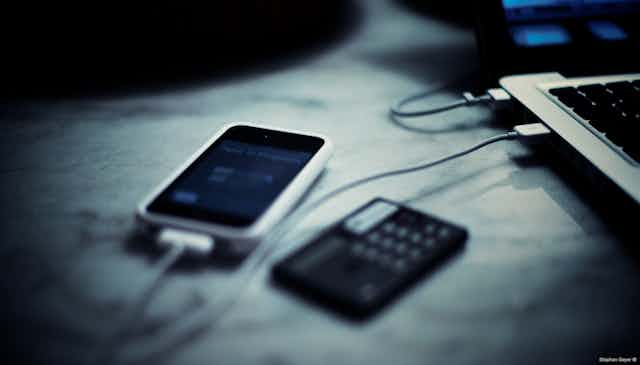The US National Security Agency (NSA) leaks just keep coming. Only a few days after details of its software anti-cryptography hacks were exposed by The Guardian, New York Times and ProPublica, German news source Der Spiegel reported some intriguing news regarding the NSA’s activities in hacking smartphones.
According to the article, Der Spiegel has seen leaked internal NSA documents that report on NSA’s efforts in hacking iPhones, Androids and BlackBerrys.
There are a number of interesting aspects to the story.
First is that the NSA regards smartphones as something of a boon for their activities. Not only are smartphones used for a variety of communications - voice, messaging and emails - they contain lots of other information of interest to the agency, such as social and professional contacts, geolocation, personal and professional interests, photos.

Much of modern life for many people is lived through their smartphone. The report quotes the statistic that more than two thirds of mobile phone users in the UK now use smartphones. The extent of our reliance on the smartphone and its ubiquity make it an attractive target.
Of course, the most interesting aspect is how the phones are hacked. Modern cryptographic algorithms used in smartphones are generally regarded as unbreakable, although there are some stories about NSA progress there as well.
Weak points
It is in the implementation of the algorithms and the supporting systems that weaknesses can occur and is typically where an attack can most easily be carried out.
The article is a little short on the detail as to how the NSA have carried out the hacks, but there seem to have been two avenues, both related to implementation:
The first is in synchronisation. The most successful hacks appear to be based on attacking host machines with which the smartphone is synchronised. Synchronisation is the process whereby data on the smartphone is stored on a host machine in the event that it’s lost on the smartphone. In attacks using this type of approach, it is the data on the host that is the target rather than data on the smartphone itself. The smartphone may be secure, but the host may not be.
The second is in some of the smartphone apps. No examples are given in the Der Spiegel article but there is an anecdote about a former NSA head joking about the 400,000 iPhone apps being 400,000 possible avenues of attack.

BlackBerry: finally cracked
Much of Der Spiegel’s report is dedicated to the NSA’s efforts in cracking the BlackBerry. Apparently, the BlackBerry was particularly challenging to hack but efforts were eventually successful.
As the report points out, BlackBerry is likely to be very upset about these disclosures. The company is in financial difficulty and is looking for a buyer. One of the few strengths of its products compared with other smartphones was the perception of BlackBerry’s superior security – one of the reasons it has been the choice of government officials and protesters the world over. These releases undermine that perception.

There are other interesting aspects. It is not just the NSA that has been active in this area. Britain’s Government Communications Headquarters (GCHQ) has had success as well, particularly in cracking the BlackBerry. Another is that the NSA appears to have exploited weaknesses in the communications protocol (encryption method) used on the BlackBerry.
Perhaps the key point of the Der Spiegel article is that implementation is often a weak link in a cryptographic system. Cryptographic algorithms might be strong, perhaps unbreakable. It is in the implementation that weaknesses occur.
So what does this mean for smartphone users? For most of us, our lives, even if not blameless, are unlikely to be of sufficient interest to the intelligence agencies to warrant the effort needed to be hacked.
But it’s worth bearing in mind that, if an intelligence agency really wants to see what’s on our smartphone, they can probably get it.

